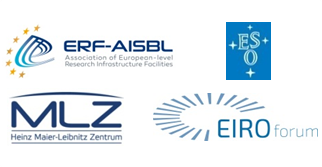Speaker
Mr
João Retrê
(Institute of Astrophysics and Space Sciences)
Description
There is a need for a growing number of motivated people who are able to create a bridge between scientific research and the public, with a strong scientific component and communication skills. Investing and developing these characteristics in science students and future researchers is essential.
This contribution addresses a successful, low budget, informal education programme in astronomy that makes use of the practice of science communication as a way to enhance formal science education, stimulate the development of communication skills, and emphasise the importance of science communication in the context of scientific research.
Having initially been designed for students in the first cycle of higher education, currently the programme also includes high school students, as well as MSc and PhD students. In addition to these, community members and university professors are also involved.
The programme consists of training aimed at students and their involvement in science communication events. In this format, they receive monthly training given voluntarily by researchers in astronomy and astrophysics, as well as by science communication professionals.
The knowledge acquired by the students is actively put into practice in periodic public outreach activities, where they have an active role in organising events, interacting with the public and communicating scientific knowledge.
The project began in 2009 with 14 students from the Physics course of the Faculty of Sciences of the University of Lisbon. Currently, more than seven years since its creation, it has the active participation of 70 students from different areas of knowledge, colleges and universities. With an average enrollment of 2 students per month, it became self-sustained, with more than 250 students that already participated in the programme.
This presentation will cover the resources and methodologies applied, framed in a temporal evolution, that led this programme to gain the current dimension. It will be evaluated the relevance of this programme to build a community of young scientists supporting the outreach of the institution, and also to nurture a culture of science communication in the research community.
Primary author
Mr
João Retrê
(Institute of Astrophysics and Space Sciences)
Co-authors
Dr
Jose Afonso
(Institute of Astrophysics and Space Sciences)
Dr
Rui Agostinho
(Institute of Astrophysics and Space Sciences)

